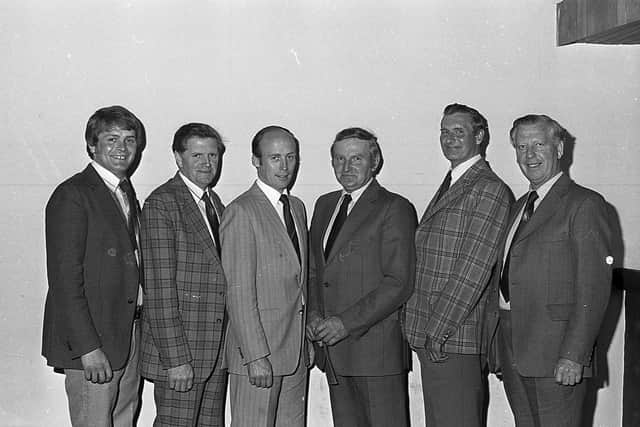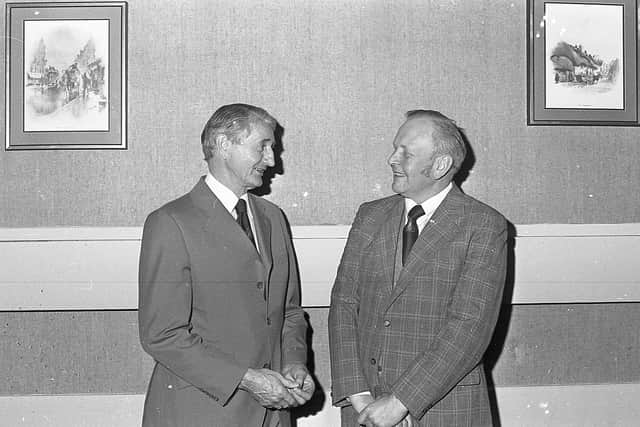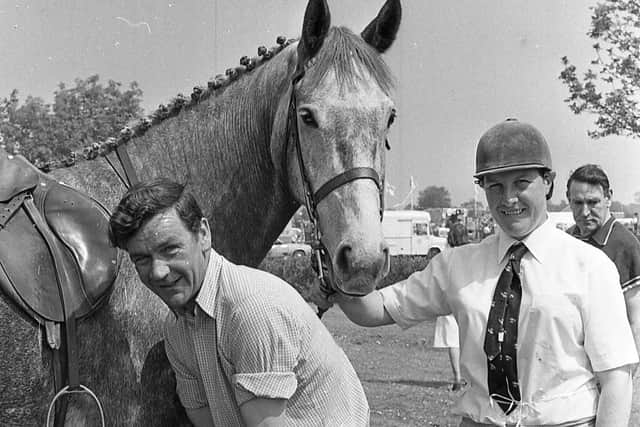Bygone Days: Criticism of Wool Board from Ulster producers
and live on Freeview channel 276
“We have been inundated this past two weeks with phone calls from angry farmers and collectors who tell us that, since mid June, anyone who books wool deliveries to Muckamore, is being offered dates of delivery in mid October,” NIAPA secretary John Joe Bradley told Farming Life.
“We also talked to an agent who told us that he arrived at Muckamore with a lorry load of wool at 8 o’clock in the morning and did not succeed in getting unloaded until after lunchtime.”
Advertisement
Advertisement
Mr Bradley said this was a “totally unacceptable” situation.


“The bulk of year’s clip has still to be booked into Muckamore as the majority of mountain sheep have yet to be shorn.
“We fail to understand why this situation should exist in Northern Ireland since we have almost double the unemployment rate of any other region in the United Kingdom.
“We understand that the Wool Board is planning additional storage facilities, but this is not going to ease the problem this year,” he said.
Advertisement
Advertisement
He added: “Surely it would be much simpler to increase the number of graders on duty and thereby increase the amount of wool handled each week, instead of trying to keep a small number of graders working 52 weeks of the year.”


Commenting on NIAPA’s criticism, Mr Maurice Megahey, Northern Ireland member of the BWMB, said that three full time graders were employed at Muckamore and, in times of emergency, the manager also graded.
He pointed out that Muckamore handled an average of 110,000k of wool per week.
“The total wool produced in Ireland last year was 2,220,864 kilos. We are a month behind. 1984: last year the increase was the highest in Europe; this year it is up eight per cent. This means we are handling 2.4 million kilos this year.
Advertisement
Advertisement
“We handled 1.89m in 1984 and are a month behind 1984,” he said.


A new building at Muckamore was to be operational by the middle of the month Mr Megahey noted.
“We also have a computer link with Bradford which saves time and postage and speeds up payments.
“If producers keep throwing wool at us it is inevitable that snarl ups will occur. Producers should remember that wool delivered to their haulier or to Ulster Wools after September 1 automatically qualifies for a storage premium equal to one pence per kilo per month.
Advertisement
Advertisement
“Producers can help the situation by holding wool on their farms.” he said.


EURO GRANTS FOR ULSTER PROJECTS
Eight projects In food processing and animal feed In Northern Ireland have received grants totalling £1.2 million from the European Commission reported Farming Life during this week in July 1986.
The aid was part of a £58 million allocation from the Guidance Section of the Agriculture Fund (FEOGA) to 281 projects across the community.
The main beneficiary in Northern Ireland was the Cookstown firm, Unipork, which had received a grant of £481,000 for modernisation of its pigmeat plant at Ennisklllen.
Advertisement
Advertisement
A grant of almost £300,000 had also gone to J D Fulton, Tullylinkesay Mills, Castledawson, for the modernisation of its animal feed mill.
In all, 47 projects In the United Kingdom qualify for a total of £6.1 million of aid.


Eire received a total of £5.7 million for 16 projects.
The projects aided In Northern Ireland included: Unipork Ltd, Cookstown, £461.859 for modernisation of pigmeat processing facilities at Enniskillen; Unipork Ltd, £19,329, for modernisation of pigmeat slaughtering facilities at Enniskillen; J D Fulton, Tullylinkesay Mills, Castledawson, £299,860, for modernisation of animal feed mill; Cookstown Meats Ltd, Cookstown, £145,925, for provision of meat processing facilities. Ulster Farm Turkeys, Cookstown, £98,717, for provision of processing facilities for fresh and frozen turkey; Dungannon Farmers Mart, £92,848, for relocation of livestock market at Dungannon.